Содержание
- 2. PART 1 CHINA MARKET BACKGROUND
- 3. MARKET BACKGROUND China has 1.3 billion people, largest country in the world. It has become the
- 4. MARKET BACKGROUND (CONT’D) In 2003, China overtook Japan to become 2nd largest world economy (on PPP
- 5. ENTRY BARRIERS Import license controls – the Ministry of Foreign Trade & Economic Cooperation (MOFTEC) is
- 6. TRADE REGIONS SPECIAL ECONOMIC ZONES (SEZ’s) to attract foreign investment in production for export are still
- 7. HONG KONG’S ROLE HK handover had little impact on economic policy – so far. Many western
- 8. PART 2 STP MARKETING STRATEGIES
- 9. MARKET SEGMENTATION Geographic region. E.g. four regions: Eastern China (with Shanghai as the center), Northern China
- 10. MARKET TARGETING Chinese talk about "Four big things" (shi da zen), the four products everyone aspires
- 11. Global brands confer status. Domestic products still suffer from negative image. Need to accommodate translation of
- 12. PART 3 MARKETING MIX-4 P’s
- 13. PRODUCT POLICIES Quality gap between foreign & local products still large High tariffs make it hard
- 14. Chinese are very price-sensitive consumers (due to low income and due to habit) Prices still high
- 15. DISTRIBUTION National product roll-outs close to impossible due to large size and weak infrastructure Most channels
- 16. Advertising still strictly controlled by government Media penetration is weak (e.g. TV) Advertised products are not
- 17. If you don’t like it, go somewhere else. Ask someone else. Take a taxi if you
- 18. PART 4 Marketing skills
- 19. 1. How to determine that there is a market for our product in China? The one
- 20. 2. Do you need a China market entry strategy? Forward-thinking companies recognize that success rests on
- 21. 3. Where do we start in a country this size? Indeed, China's population size of 1.3
- 22. 4. How do we find a potential partner? How How do we know how good that
- 23. Selecting the right local distribution partners in China One of the fastest and less risky ways
- 24. In the past, foreign firms can appoint Hong Kong distributors to act as their distributors in
- 25. Factors as a reference for a good distributor 1. A strong and stable financial background 2.
- 26. In your visit to China to meet the potential distributors, you may wish to check out
- 27. 5. What types of difficulties have foreign companies encountered in Chinese market entry? Language Cultural issues
- 28. 6. What are some of the current particular obstacles? Non-tariff measures frustrate foreigners trying to do
- 29. 7. Which is better - an agent or a distributor as means of China market entry?
- 30. 8. Can I give an agent exclusive 8. Can I give an agent exclusive rights to
- 31. 9. How much control do I have 9. How much control do I have over what
- 32. 10. How can I protect my intellectual 10. How can I protect my intellectual property and
- 33. PART 5 Tips to invest and do business in China
- 34. Tip 1 Guanxi, or personal relationships are of vital importance when doing business in China. Do
- 35. Tip 2 People are comfortable building relationships with honourable people who show respect to those to
- 36. Tip 3 As all relationships are unequal it is important, if you wish to appear honourable,
- 37. Tip 4 Managers tend to be directive, which reflects basic Confucian concepts of the hierarchical nature
- 38. Tip 5 In return for loyalty, the boss is expected to show consideration and interest in
- 39. Tip 6 There are often close relationships between senior management of a company and local party
- 40. Tip 7 It is important that you do not make people 'lose face' in front of
- 41. Tip 8 Do as many favours for people as possible - debts must always be repaid.
- 42. Tip 9 Business cards should be formally exchanged at the beginning of meetings. Treat the business
- 43. Tip 10 Meetings are often long and seemingly without clear objectives. Very often the meeting is
- 44. Tip 11 It can take several, very long meetings before any tangible progress is made. Patience
- 45. Tip 12 The Chinese are very interested in long-term commitment. Build long-term goals and objectives into
- 46. Tip 13 Do not be too direct. Strive for diplomacy, consensus and harmony. Remember that this
- 47. Tip 14 Do not assume comprehension. It is often useful to go over the same point
- 48. Tip 15 It is difficult for the Chinese to say 'no' directly. Anything other than a
- 49. Tip 16 It is difficult to read body language as, by western standards, it is somewhat
- 50. Tip 17 Gift giving is an everyday part of Chinese business culture. Giving and receiving gifts
- 51. Tip 18 Always wrap gifts before giving them. Gifts are rarely opened in front of the
- 52. Tip 19 The Chinese are an intensely patriotic race. Do not make disparaging remarks about China,
- 53. Tip 20 Entertaining is very important in the relationship building process. If entertaining, do it well.
- 54. Tips to invest and do business in China The amount of foreign investors is saturating the
- 55. As foreign investors enter into China, the domestic industry has been benefiting as well. While working
- 56. Therefore, do not assume that entering the China market would be easy as the Chinese companies
- 57. In addition, the Chinese government is not easy to communicate with. Due to the bureaucratic style
- 58. Very often, foreign companies may have problems looking for suitable Chinese partners as they do not
- 59. Complications of the China market The China market is increasing over the years and many foreign
- 60. For a successful partnership, both parties need to go the extra mile to learn more about
- 61. PART 6 Suggestions on how overseas companies can work effectively with the locals in China
- 62. 1. Chinese Business Culture Many foreign investors find it very frustrating to work with the Chinese
- 63. The people in China have a strong national and culture pride thus it is of no
- 64. Furthermore, the foreign companies need to understand how the Chinese carry out their business here. As
- 65. 2. “Guanxi” Maintaining good relationships in China would help foreign companies in the China market. The
- 66. 3. Establish close relations with government officials Because the China government plays an important role in
- 67. 4. Local competition Foreign investors also need to find out what their local competitions are. However,
- 68. Foreign investors can seek for outside help when trying to enter into the China market. The
- 69. Learn about Chinese business style Take a look of the analogy of sun rise at dawn.
- 70. China has attracted the second leading number of foreign direct investment every year ever since 1993.
- 71. However, too much of the scorching sun does not do any good to our body. Even
- 72. The Chinese value relationships very highly. They believe that having a close relationship with another party
- 73. However, not all is lost for foreign companies. Partnering up with a local individual or organization
- 74. The Chinese have a very strong national pride and are more comfortable with familiarity. One of
- 75. Chinese first tier cities, second tier cities and tiered cities Years of economic reform ranged from
- 76. As such, it is a good time to examine how the Chinese cities have developed according
- 77. Coastal cities aid imports and exports. In addition, agglomerating the “test” cities can develop economies of
- 78. As a result of shorter and improved transportation and communication infrastructure, economic development proliferates to the
- 79. The Chinese tiered city system is characterized by the city economy scale and population size with
- 80. The third wave will see more of the second tier cities in action. With over 20
- 81. Already armed with a relatively medium to high disposable incomes and an average GDP per capita
- 82. China in the past 20 years is akin to a baby dragon playing around its nest,
- 83. Understand the risk of entering China market China market is indeed a growing pool of investments,
- 84. China is a good opportunity for companies to embark on if they want to expand their
- 85. China market is a complicated field by which only those who are familiar with the Chinese
- 86. To survive in the China market, one must have good relationships in the market. The Chinese
- 87. However, a number of foreign companies do not a good network in China and thus they
- 88. Foreign companies need to familiarize themselves with the China market laws and culture before entering it.
- 89. In addition, most of the foreigners are not exposed to the Chinese culture, thus they do
- 90. Problems that foreign companies may encounter when entering China market Every market has its own risks
- 91. If China continues to progress at this rate, many believe that China will soon be the
- 92. First and foremost, China has a different culture from the US and Europe. The way the
- 93. However, being able to speak the language does not mean that the party will be able
- 94. As the Chinese are very respectful of others, they would tend to seek others’ opinions and
- 95. Next, the Chinese are very particular about having a good relationship with others. The way to
- 96. The Chinese business culture is very different from the norm that foreign companies are familiar with.
- 97. Tips to prepare for your first Chinese negotiation You are set to enter the Chinese market,
- 98. If you do not understand Mandarin, engage a good interpreter to ensure your message is conveyed
- 99. As a foreign business entering the Chinese market, it will be advantageous for you to make
- 100. Leverage on your interpreter to pick up simple Chinese to be used in meetings. It can
- 101. Sometimes you may find your potential partners reacting negatively during the meetings. Do not be alarmed
- 102. Thus, you must be prepared to make subsequent return visits to finalize the details and to
- 103. As a foreign business, you may also be a part of their “Mian Zi” or face
- 104. Contract should have the following 1. Guard against exclusivity 2. Agreement on the volume targets 3.
- 105. Stages to set up your representative office in China Setting up a representative office in China
- 106. Stage 1 – Pre-approval Stage Once you have decided to base your representative office in which
- 107. Stage 2 – Application Stage Generally your application approval should be done by MOFCOM, but if
- 108. Stage 3 – Registration Stage This stage is to register for your representative office’s business license
- 109. Stage 4 – Post Registration Procedure Firstly, In China, it is expected for your representative office
- 110. The Chinese prefer to work with someone familiar as it minimizes any disagreements or problems that
- 111. Understanding the procedures and costs to set up a representative office in China The 2 main
- 112. Tips on avoiding representative office set up problems in China A Chinese Representative Office (RO) may
- 113. One of the most common tax assessment what we called the cost-plus-basis in which the total
- 114. Secondly, all ROs are permitted to import foreign made vehicle at a duty free rate which
- 115. Lastly, making sure your business is economically viable in China. Though one of the main roles
- 116. In any case, a good market analysis of the Chinese market, which can include your competitors,
- 117. Starmass International Business Consultants (China) Address: 17th, Tower A, Times Plaza, No. 6 Shuguan Rd, Beijing
- 118. Top Chinese Imports on Alibaba.com: Industrial Supplies & Machinery 12% Gifts & Crafts 6.3% Home Supplies
- 119. http://www.merchants168.com/
- 120. 1. Local State Ministry of Commerce (MOFCOM) Approach the MOFCOM or relevant agencies depending on your
- 121. 2. Local State Administration of Industry & Commerce (SAIC) Once approval certificate is obtained from the
- 122. B. Further requirements 1. Registration with the Public Security Bureau Exit-Entry Administration a. For the company
- 123. 2. Registration with the local police (Public Security Bureau) a. For representative and family’s permanent residence.
- 124. 3. Opening of company bank account a. Preferably with established banks like Bank of China. b.
- 125. Register with State Taxation Bureau for the tax registration Certificate and subsequent tax payment . Within
- 126. 5. Recruitment of local staffs through Foreign Enterprise Service Company (FESCO). 6. Register with Regional Bureau
- 127. 8. Register with State Administration of Foreign Exchange a. Register only if required to have a
- 128. C. Overview of the documents required for the establishment of RO in China 1. Copies of
- 129. 6. Certified true copied of incorporation of applicant’s company certified by the Chinese Embassy or Consulate
- 130. With that, your representative office is set to establish its presence in China. However before getting
- 131. Understanding the procedures and fees to set up a WFOE in China Wholly Owned Foreign Enterprises
- 132. As such, we seek to provide an overview of the registration process, the relevant costs and
- 133. Stage 1 - Pre-approval of Name of WFOE Agency: State Administration of Industry and Commerce (SAIC).
- 134. Stage 3 - Processing of Proposed Agency Code Agency: State Bureau of Technical Supervision (The Administration
- 135. Stage 5 - Registration with the State Public Security Bureau Agency: Public Security Bureau Exit-Entry Administration.
- 136. Stage 7 - Tax Registration Agency: Municipal Local Taxation Bureau. Processing fee is RMB 10 and
- 137. Stage 9 - Opening of Bank Account Agency: any reputable banks. Processing time and fee depend
- 138. Tips to set up a representative office in China After your first study visit to China,
- 139. representative office’s primary function is to conduct China market research, and to coordinate parent firm’s activities
- 140. Depending on your nature of business and its intended operations in China, the location of your
- 141. A representative office in China not only demonstrates your firm’s commitment to stay competitive in China,
- 143. Скачать презентацию



















































































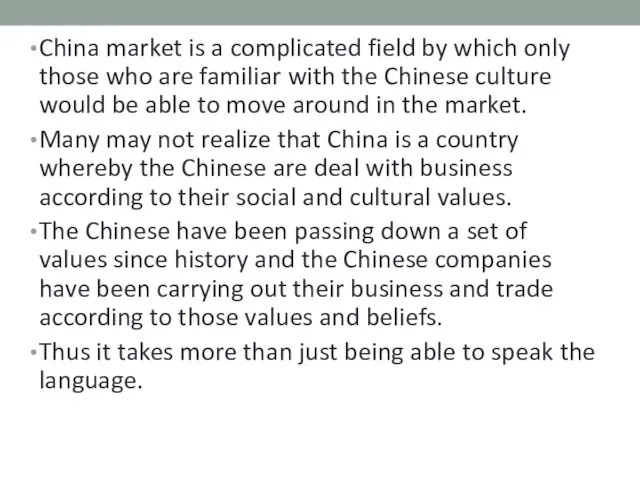

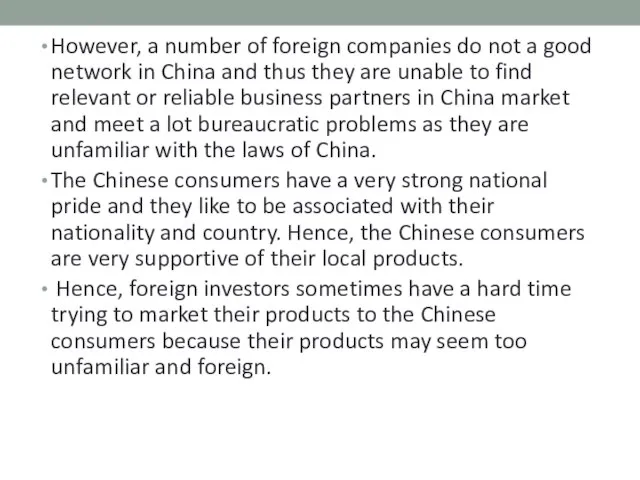
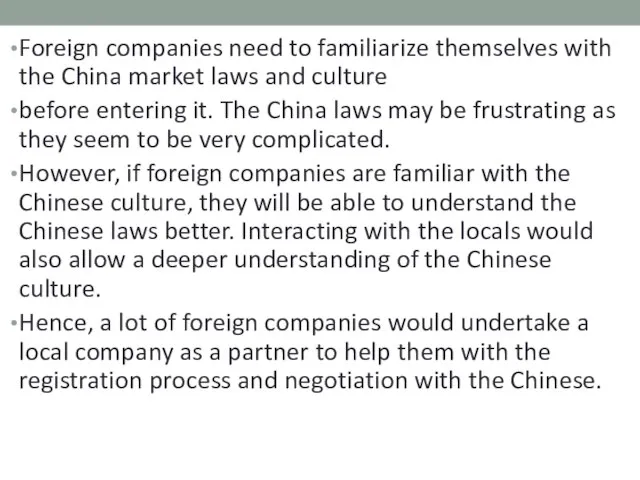
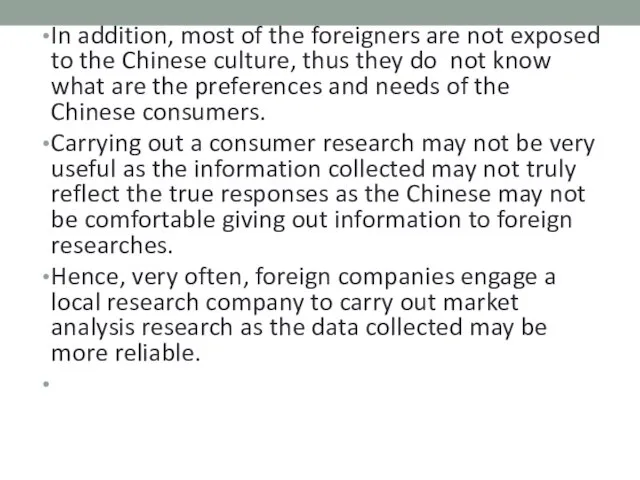
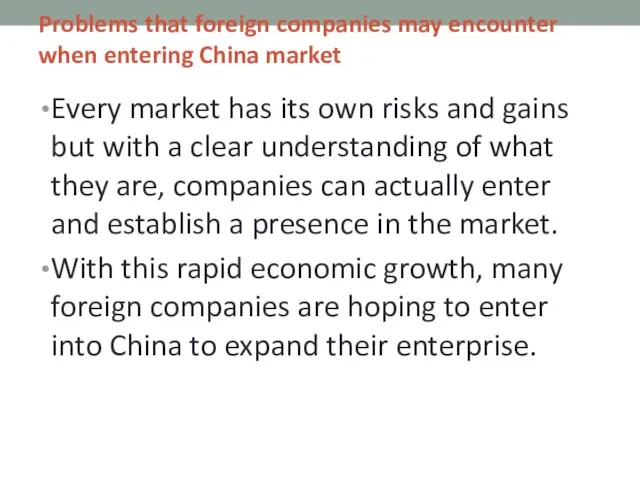
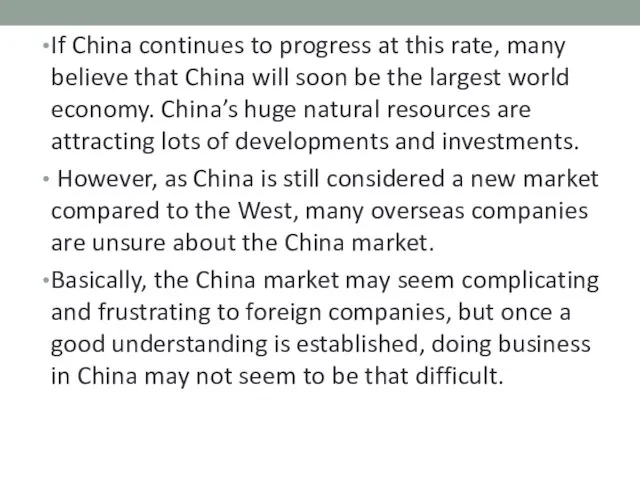
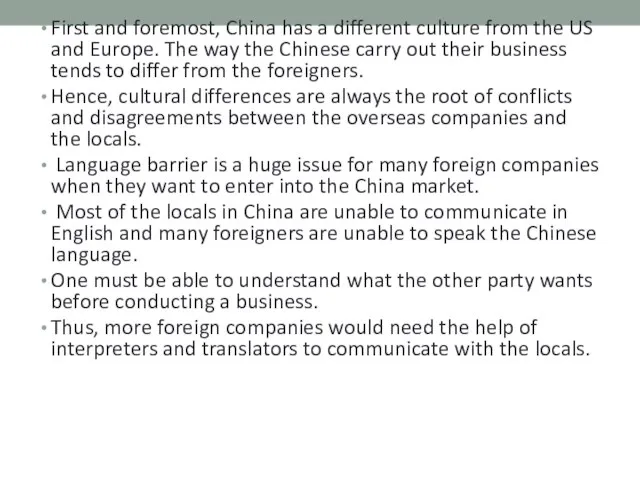
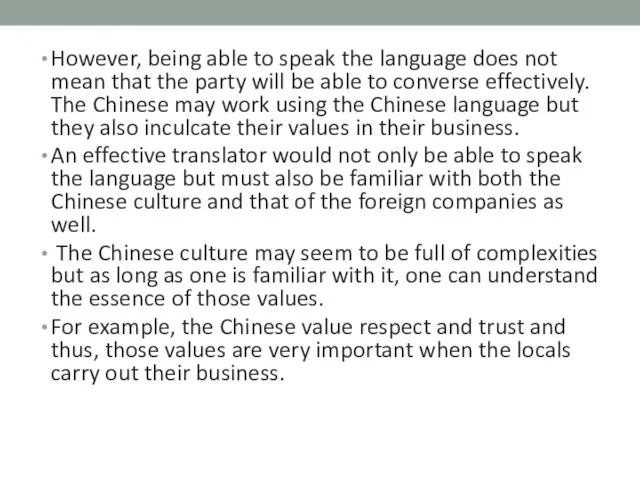
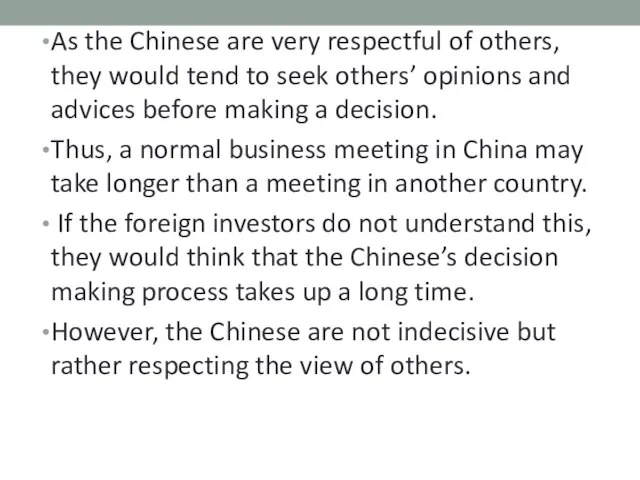
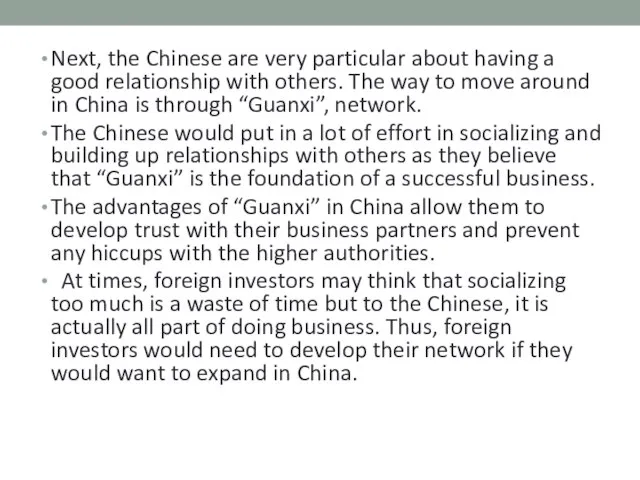
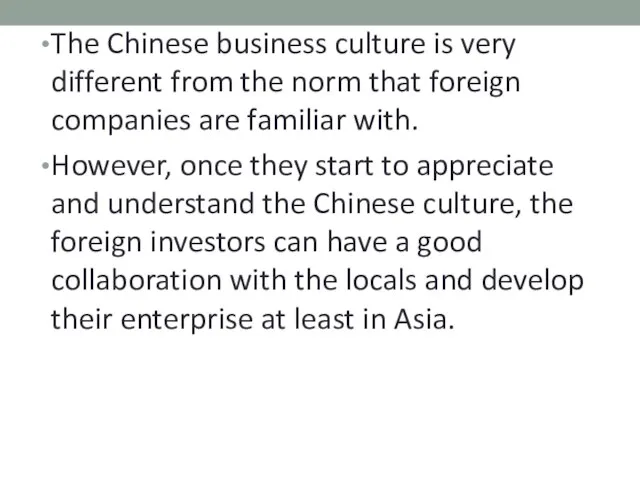
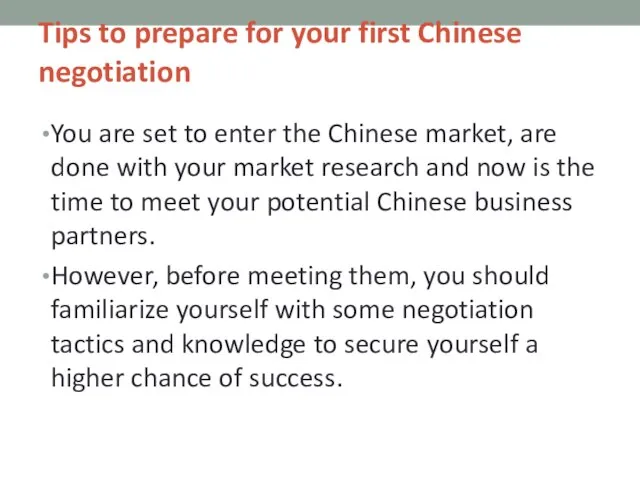
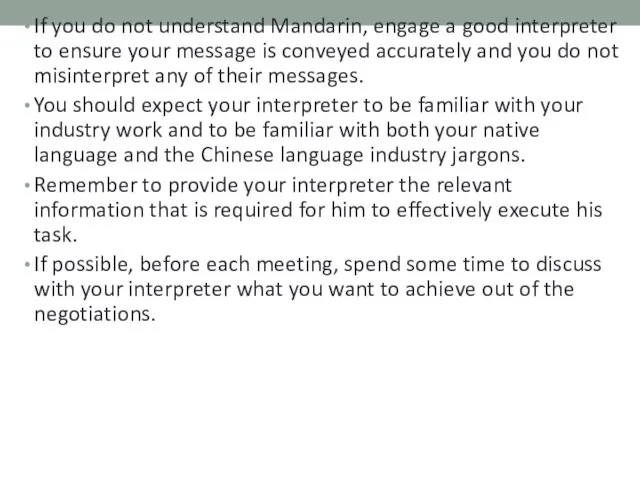
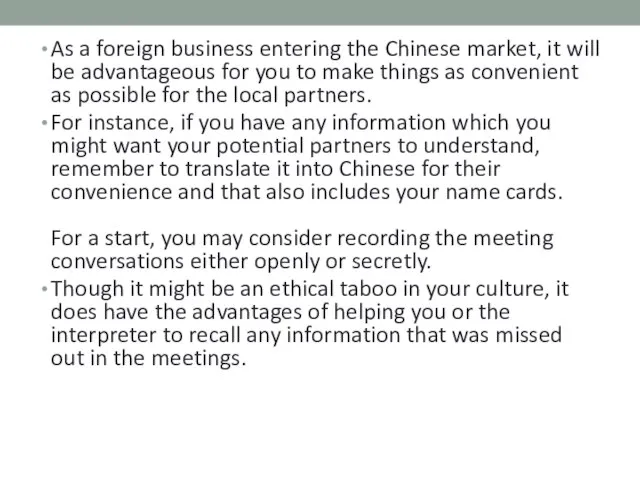
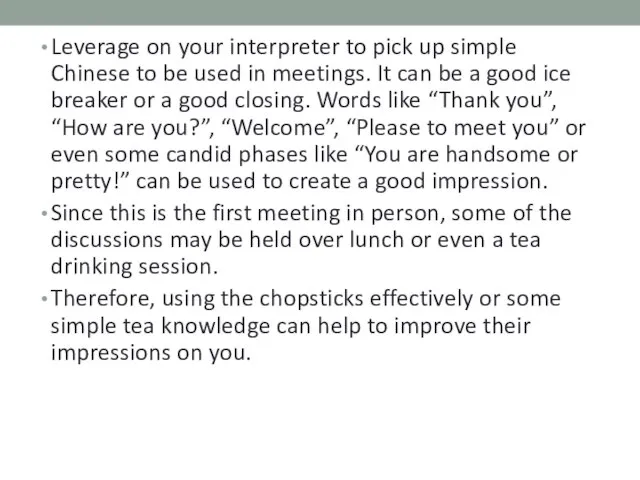
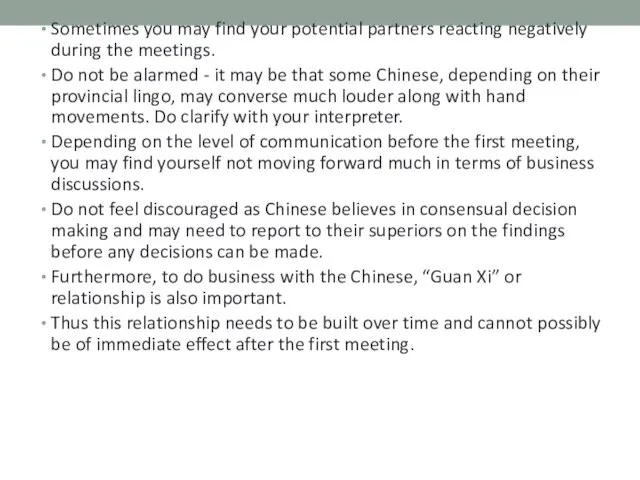
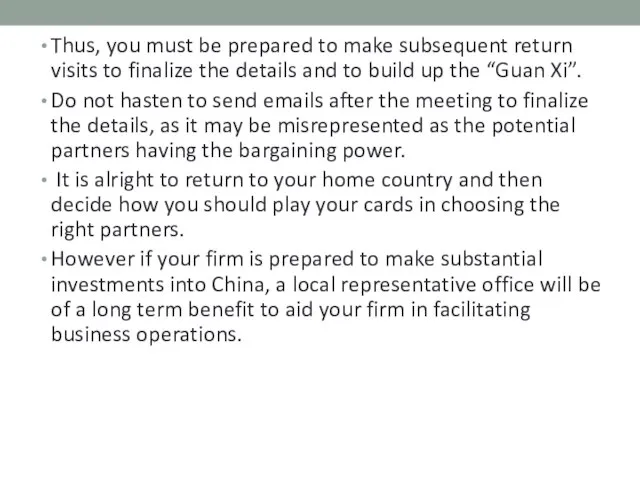
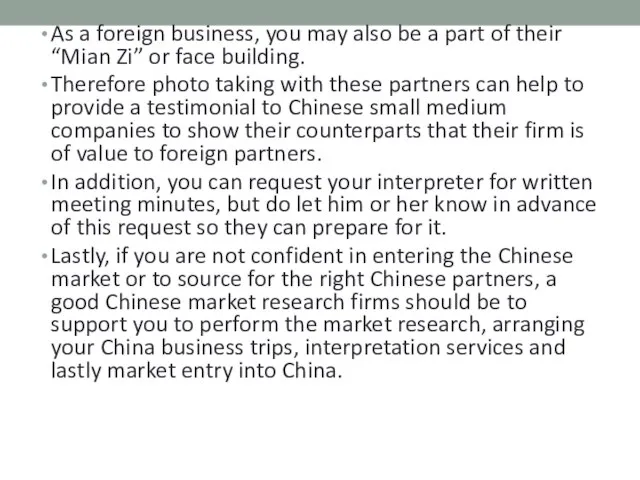
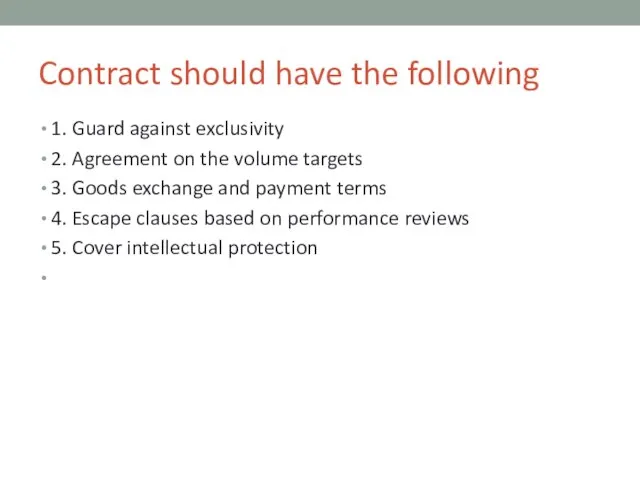
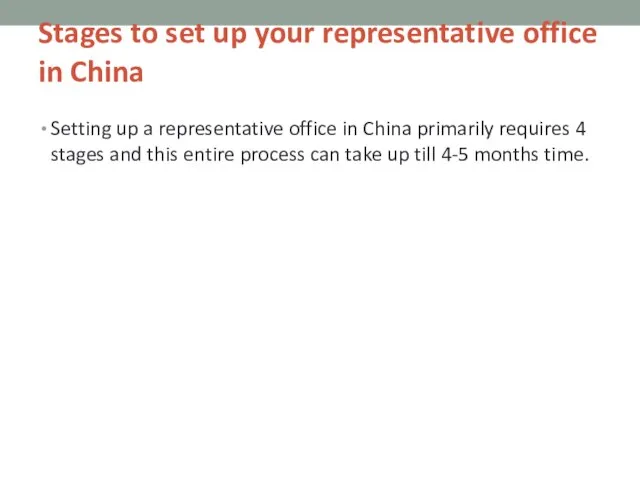
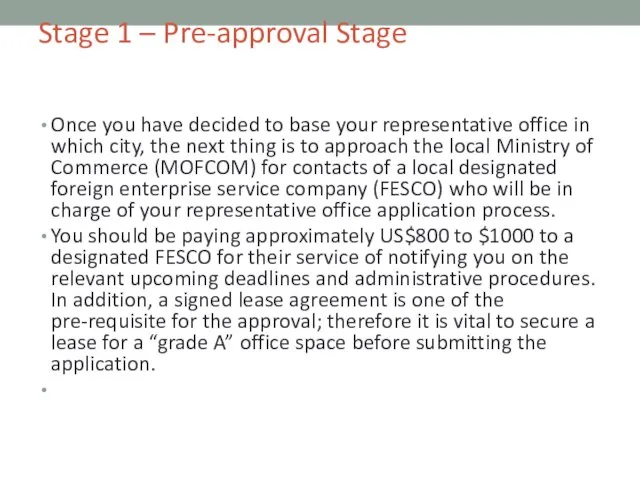
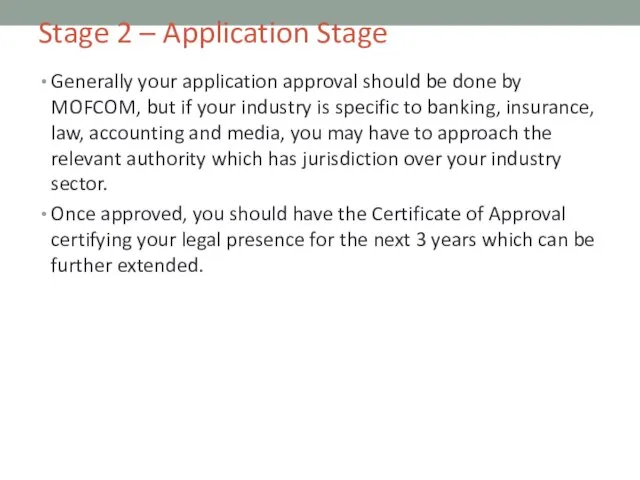
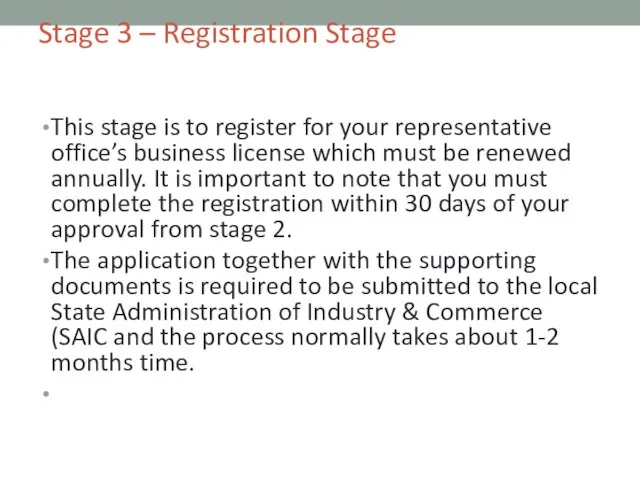
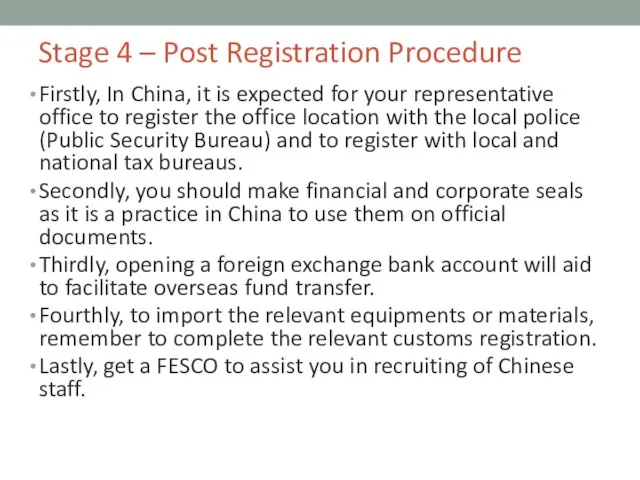
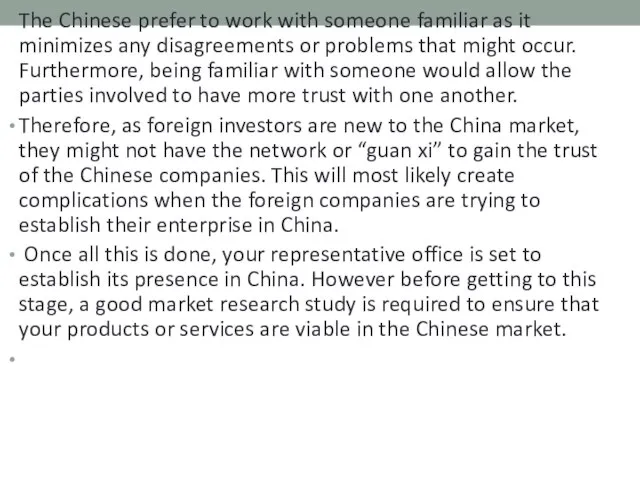
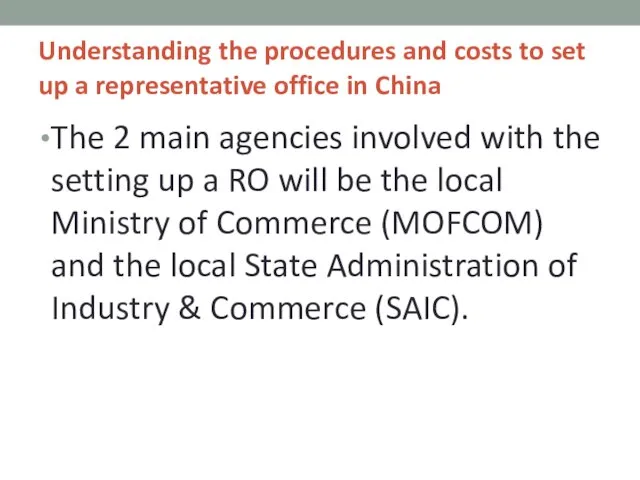
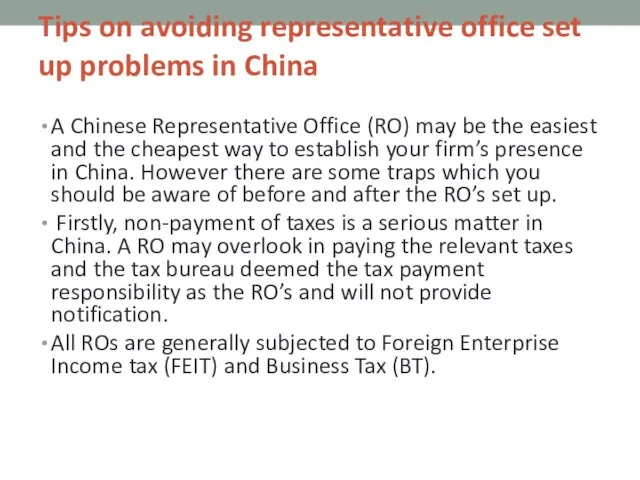
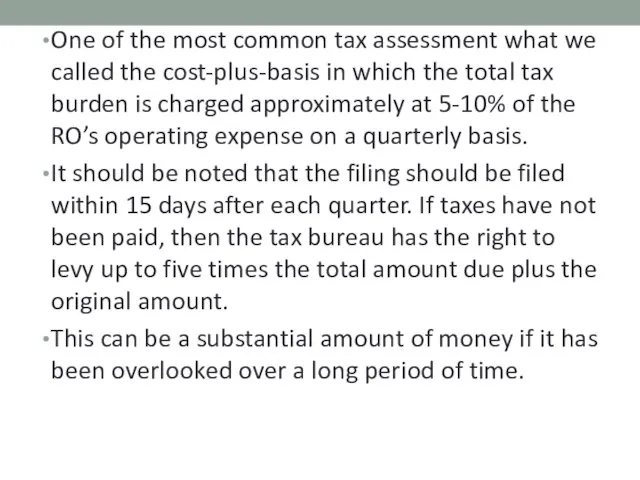
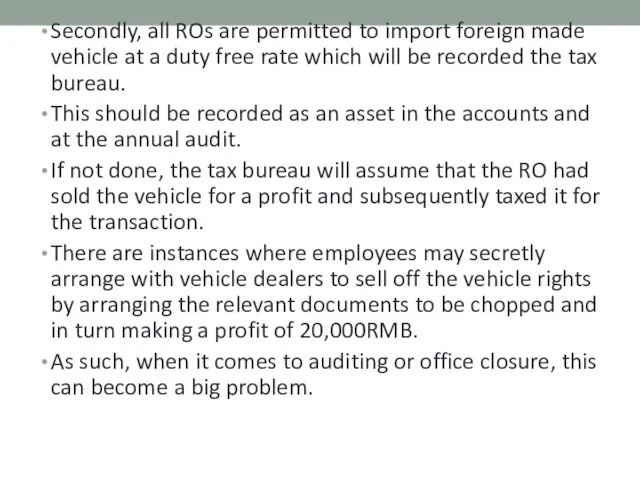
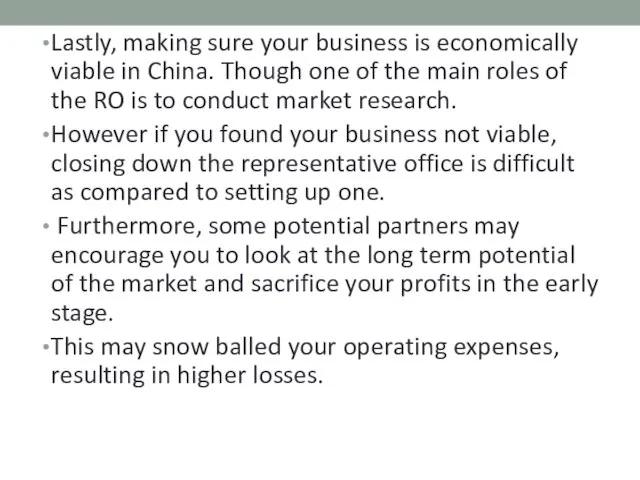
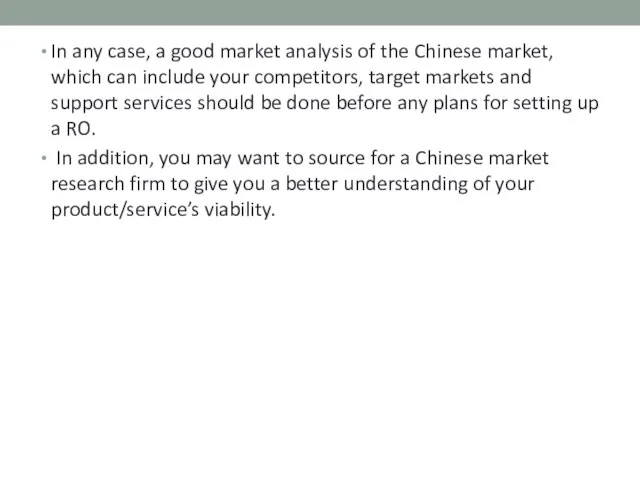
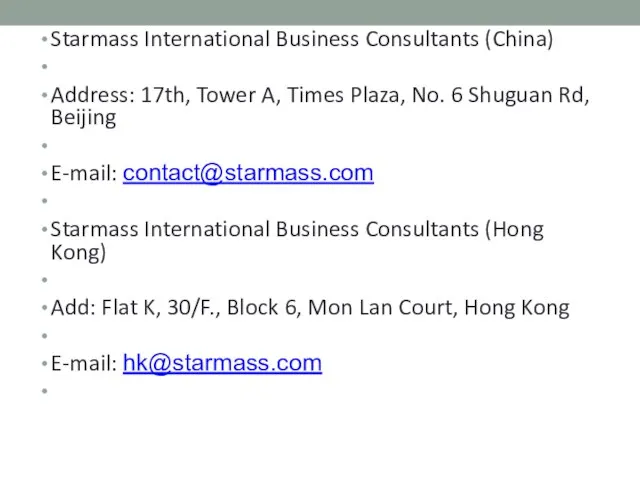
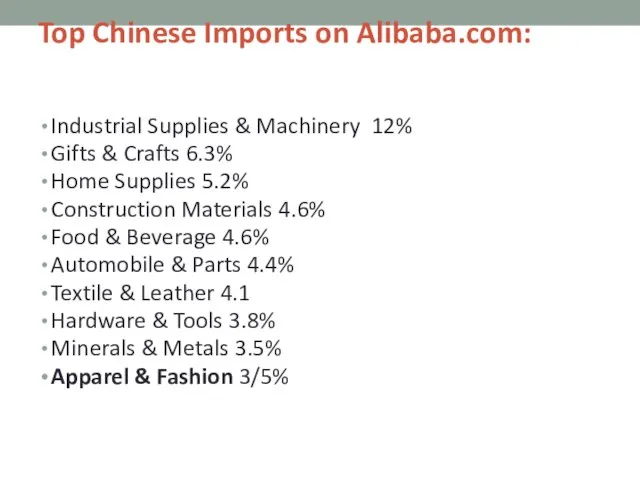

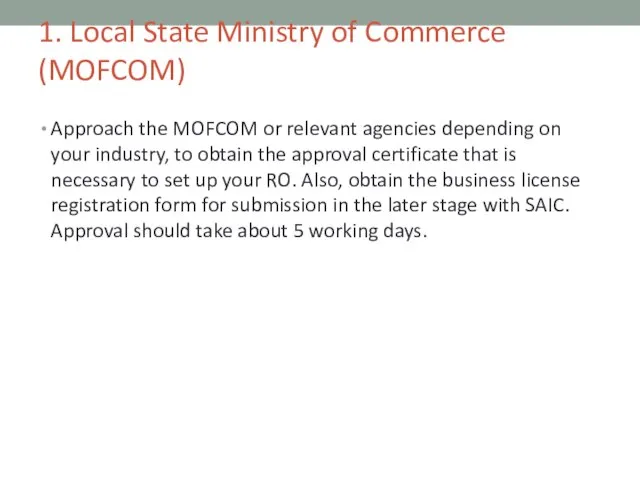
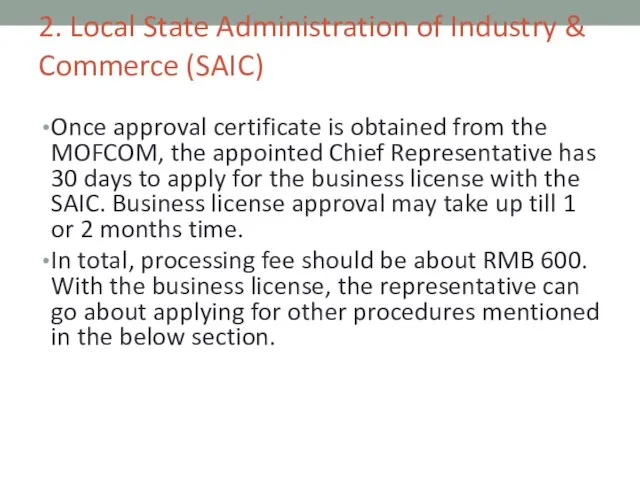
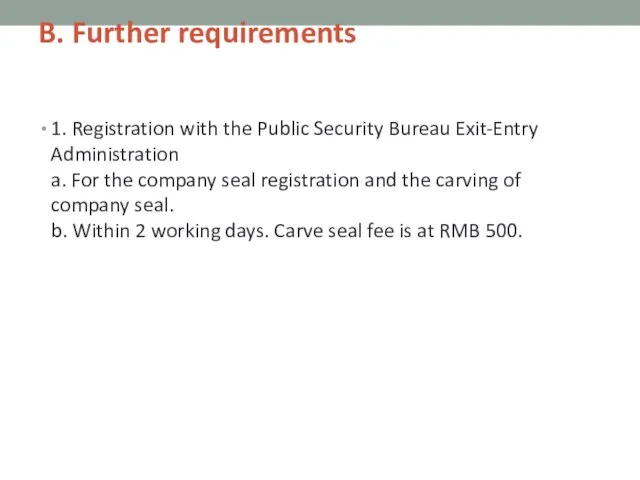
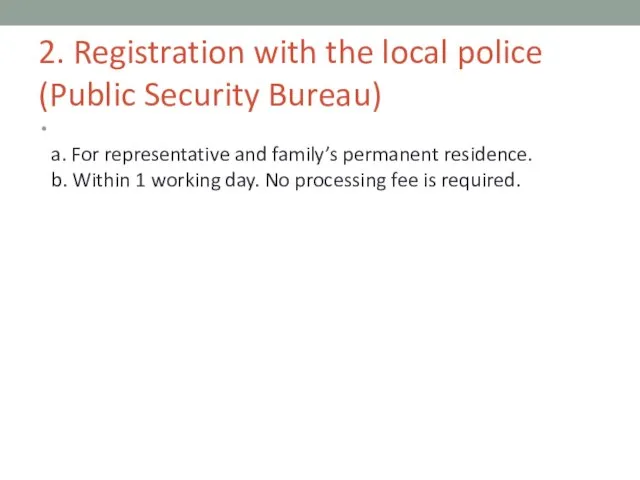
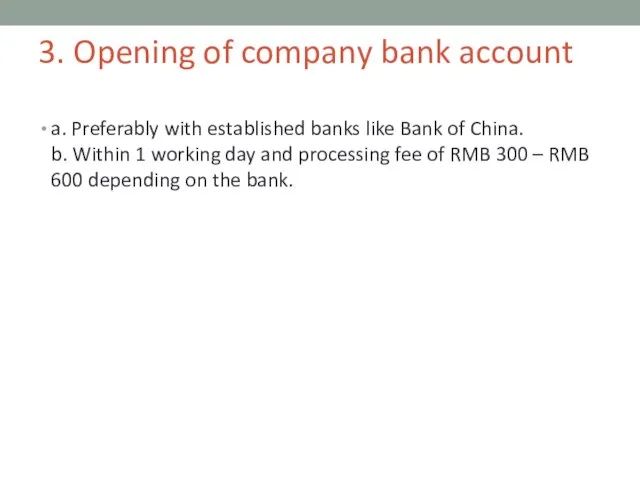
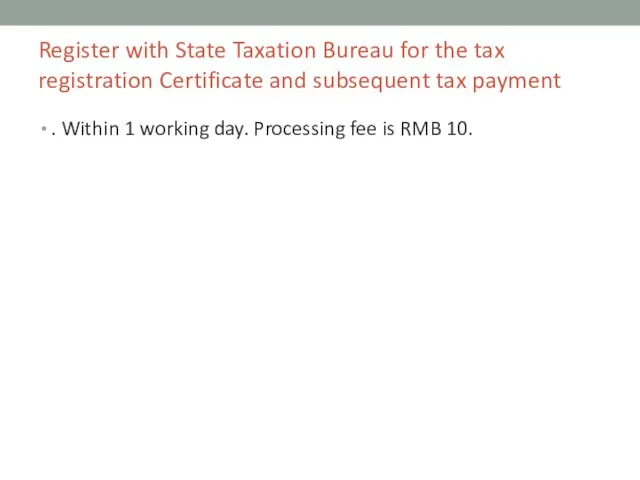
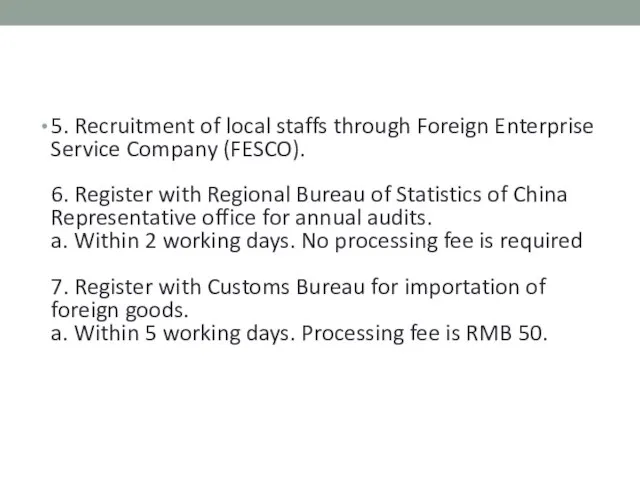
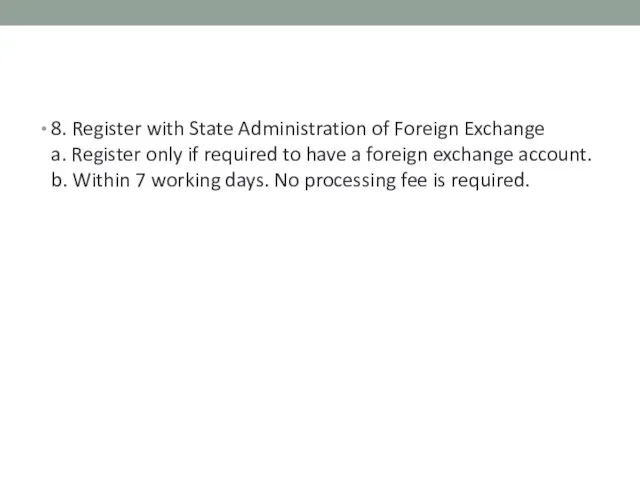
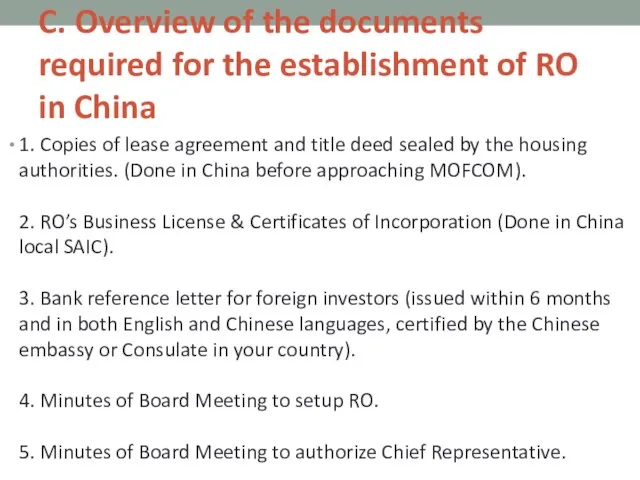
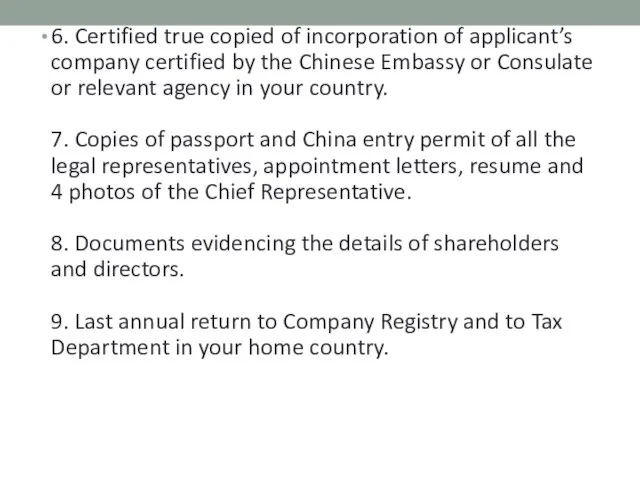
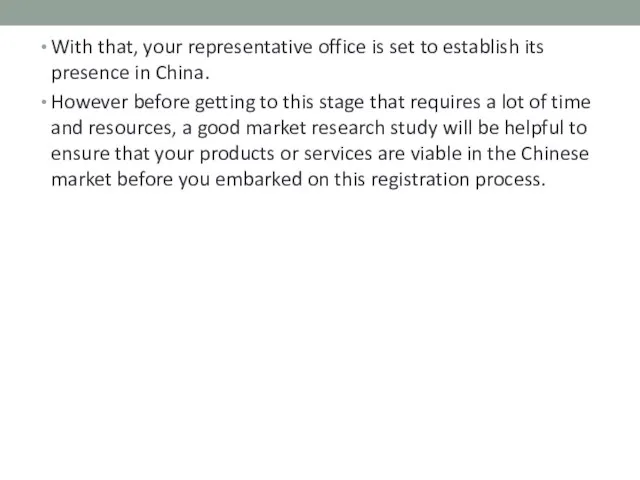
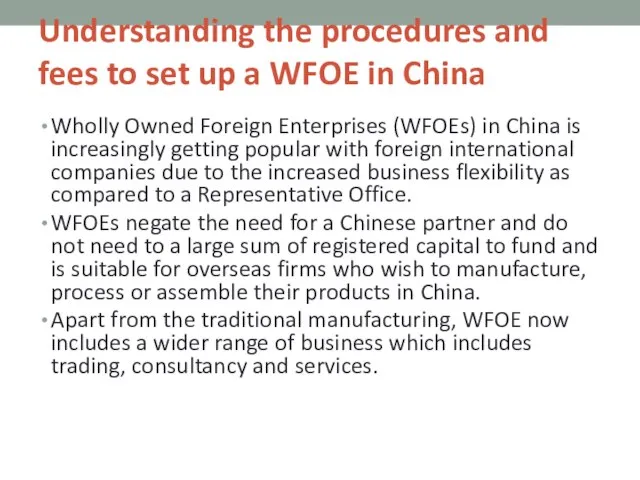
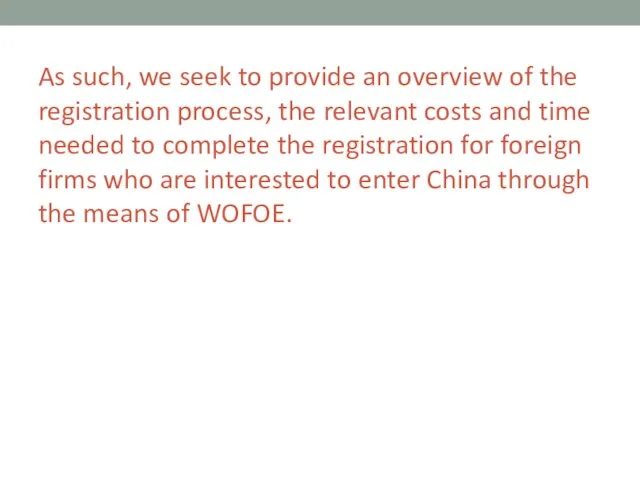
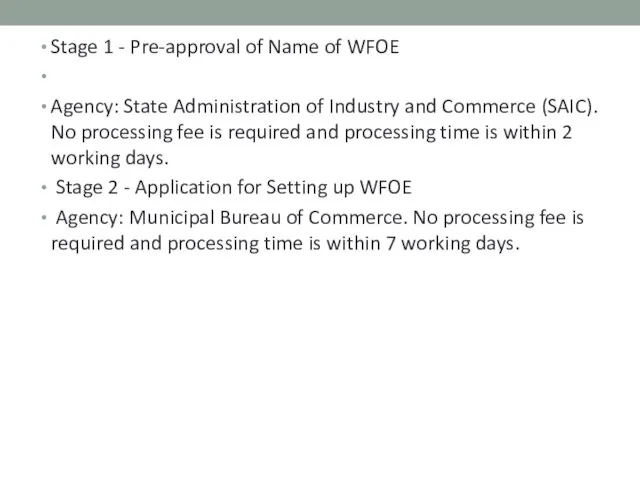
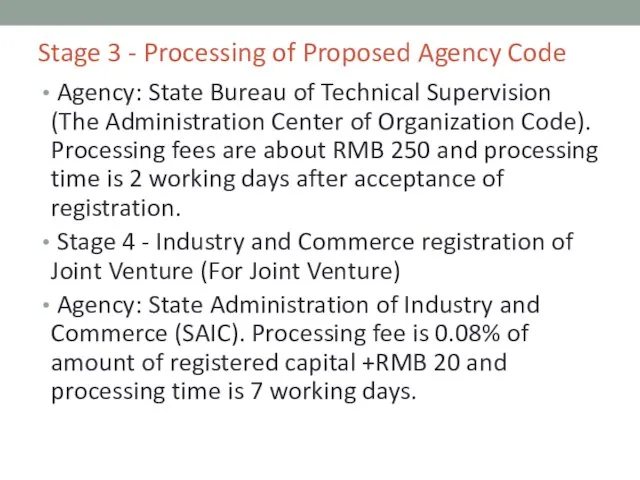
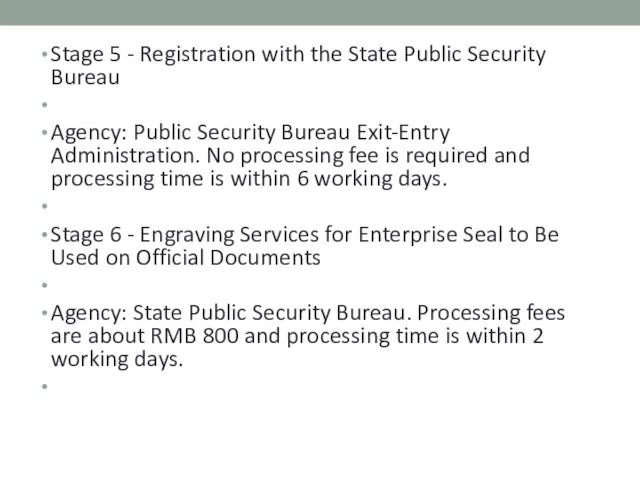
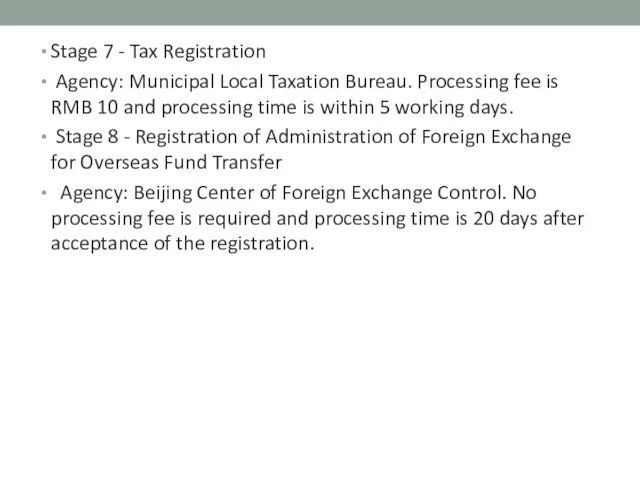
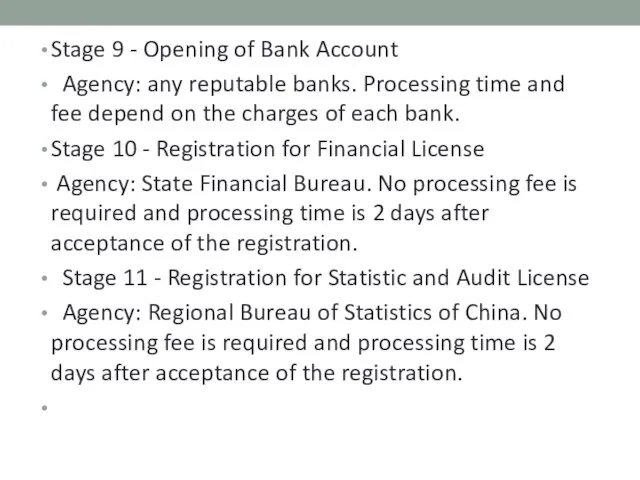
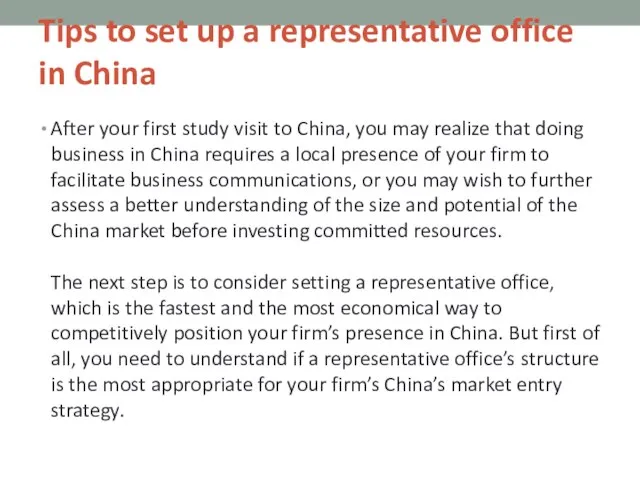
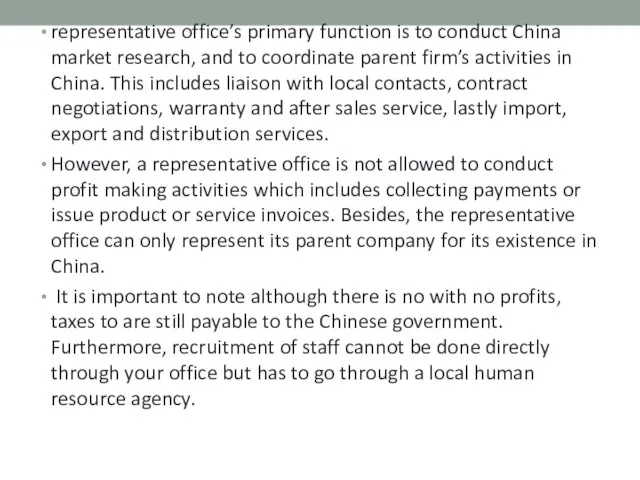
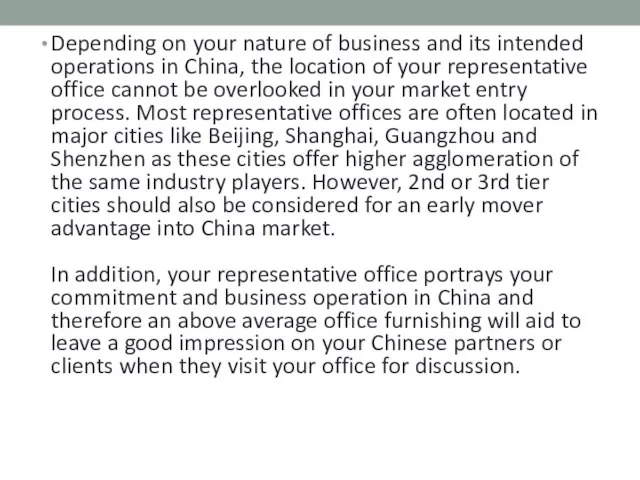
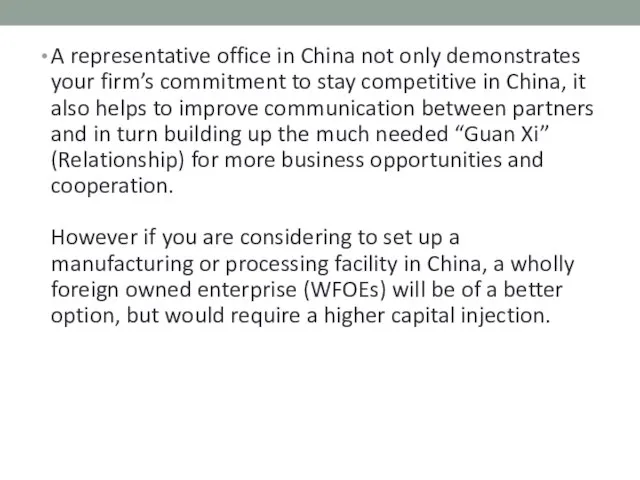
 Взаимное положение прямой и плоскости, двух плоскостей
Взаимное положение прямой и плоскости, двух плоскостей Презентация на тему Загадки по ПДД
Презентация на тему Загадки по ПДД  Презентация результатов исследования ноябрь 2008
Презентация результатов исследования ноябрь 2008 Prince Andrew
Prince Andrew Славяне в V-VII вв. Религия древних славян
Славяне в V-VII вв. Религия древних славян Remote working
Remote working Гостиница Новосибирск Марриотт Отель
Гостиница Новосибирск Марриотт Отель Правило смещения
Правило смещения 1 СЕНТЯБРЯ В МОЕЙ СЕМЬЕ. - презентация
1 СЕНТЯБРЯ В МОЕЙ СЕМЬЕ. - презентация Зона TGAM (Что нужно)
Зона TGAM (Что нужно) Семейство кошачьих
Семейство кошачьих Intel. Історія успіху
Intel. Історія успіху Волшебный мир кино
Волшебный мир кино Занятие 3
Занятие 3 Комикс «А у нас во дворе…» Профессия «Лесник»
Комикс «А у нас во дворе…» Профессия «Лесник» Презентация на тему Кавказский заповедник
Презентация на тему Кавказский заповедник Где логика? Игра
Где логика? Игра Нечеткость речи
Нечеткость речи Тайна как инструмент изучения бессознательного в культурно-историческом подходе
Тайна как инструмент изучения бессознательного в культурно-историческом подходе Как подготовить свой проект?
Как подготовить свой проект? Страхование убытков от перерывов в производстве
Страхование убытков от перерывов в производстве USB зажигалки
USB зажигалки PROBLEM SOLVING Interlocutor
PROBLEM SOLVING Interlocutor Лоис Лоури Дающий
Лоис Лоури Дающий Описание проблемы Аудитория проекта – это те, кто отличается от большинства детей – это и дети, больные раком, и дети-сироты, и дети
Описание проблемы Аудитория проекта – это те, кто отличается от большинства детей – это и дети, больные раком, и дети-сироты, и дети C 8 марта
C 8 марта ремонт корпуса
ремонт корпуса СЕМИНАР О ПРЕДОСТАВЛЕНИИ СОЦИАЛЬНО-ЗНАЧИМЫХ ГОСУДАРСТВЕННЫХ УСЛУГ С 1 МАРТА 2012 ГОДА
СЕМИНАР О ПРЕДОСТАВЛЕНИИ СОЦИАЛЬНО-ЗНАЧИМЫХ ГОСУДАРСТВЕННЫХ УСЛУГ С 1 МАРТА 2012 ГОДА